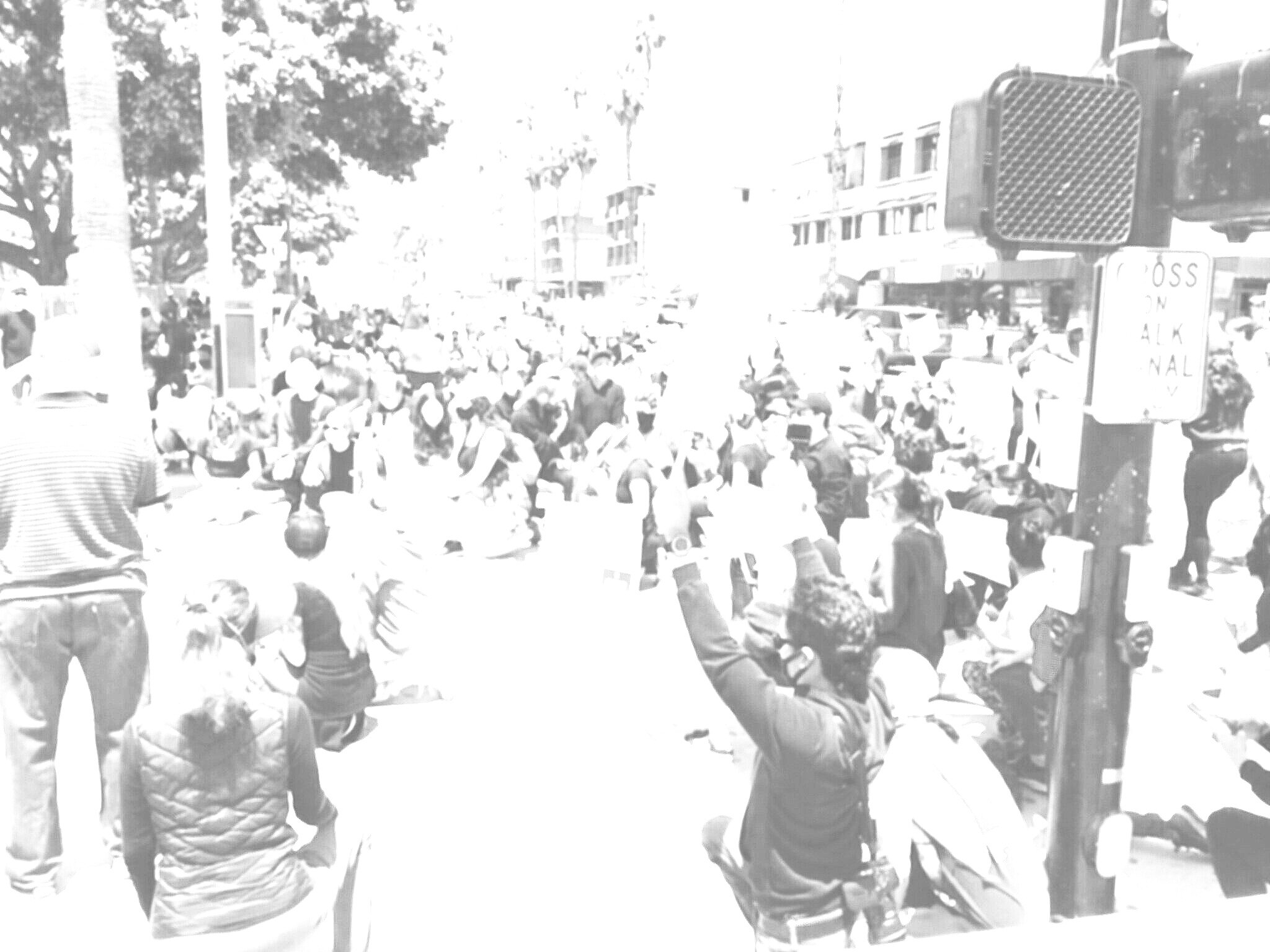BORIS KACHKA, CAROLINA A. MIRANDA, CAROLYN KELLOGG, DAVID KIPEN, & DAVID L. ULIN
“The book “ushered me into an understanding of Latasha’s legacy — its undeniable beauty, unjust difficulty, and its impact on fights for humanity in Los Angeles.””
JONATHAN RIGGS
April 14, 2023
“The family unit has meant the survival of Black people, even under the harshest of societal and personal conditions. The contributions that Black people have made to the nation — as captives, workers, thinkers, inventors and artists — have all been possible because of the Black family.”
“[Woke] is a pejorative term in the US as well. People are afraid. They fear change and they are afraid about what is going on. I understand that...They are worried about losing their share. But there is enough for everyone”
ERIN B. LOGAN
June 13, 2022
““It is not particularly common for African American families to find artifacts from the era of enslavement.” Most enslaved people were not literate and records documenting their existence were produced by slaveholders who emphasized their financial value over their humanity.”
SAMANTHA MASUNAGA, JACKELINE LUNA, & SEAN GREENE
April 29, 2019
“With prices like this, it’s so difficult for young people or anybody … to find a decent place to live, and I think overall, that’s very harmful to the community.”
SANDY BANKS, ALEJANDRA REYES-VELARDE, & RUBEN VIVES
April 28, 2022
““People feel unease about race across the nation...They realize that the country is in an awkward situation in regards to race.””
POLITICO MAGAZINE
December 29, 2021
“Simply put, 2021 would be remembered in part as a year when America held onto hope of moving past one of the most destructive pandemics of the past century, but in which hate — a perverse illness itself — still flourished.
This was a “normal” that no one needed.”
ISABELLA GRULLÓN PAZ
June 16, 2021
“Juneteenth has now had a rebirth in terms of people focusing on it, celebrating it, wanting to know what it is and wanting to know what it signifies and how it relates to this long arc of racial divide and progress, or not, in our country.”
““Black people knew [police violence] happened all the time...They saw their loved ones come home all bruised up by the police or some policing agency. It’s the rest of the world that continues to be in denial. They don’t get treated that way, so they can’t believe that other people get treated that way, and they think that if they do, they must have brought it on themselves.””
“Data is scant, but at least two U.S. cities logged an increase in hate crimes against Asian Americans in 2020. The New York Police Department reported at least 28 hate crimes that targeted Asian American victims last year, compared with three the previous year. San Francisco’s preliminary data shows that nine hate crimes targeted Asian Americans in 2020, up from six the year before and four in 2018.”
““It takes a long time to memorialize anyone Black...It took us more than 50 years to move from Negro History Week to national acknowledgment of Black History Month, and that was for the entire race.””
LAURA CONNER
September 19, 2020
“Latasha’s story was the foundation for Say Her Name, and her death became the roots of the movement.”
FRANCISCO CASTRO
July 29, 2020
“The videotape provided visual proof of what the Black community and other communities of color, of the poor, etc., had complained about and still do complain about and protest against. That long videotaped beating at the hands of four police officers and the complicity of all the other police who witnessed it empowered the Black community to double down on attaining appropriate policing in our communities.”
ALLYSON CHIU
July 20, 2020
“Question what you read on social media. Question it deeply...All the information is available to us, literally at our fingertips. All you have to do is Google Harriet Tubman, you will see.”
LEILA MILLER
June 29, 2020
“All these different practices are necessary...You have to chip away at people’s consciousness, at what’s culturally important to them, along with changing laws and sitting with lawmakers.”
MAYDEEN MERINO
June 19, 2020
“[Juneteenth is] always significant, but particularly during a time when we have national and global protests, in regards to equality under the law also speaks very mightily to the protest movement that we’re having right now”
“We hope that the audience will be able to move from one time period in one room to the other, always remembering that these women, who are parts of families or parts of communities, are key, essential beings within their societies, their cultures, and their communities. Females really are at the heart of Black Life. ”
JESSICA WOLF
June 18, 2020
“Juneteenth speaks powerfully to the reality that we, as a nation, have to continue to evolve democratically, humanely and morally. It is not just about Black inequality, but the inequality and marginality that many people and groups who do not fit into a particular racial, cultural, class, gender, sexuality, and citizenship box experience in our nation.”
JEANETTE MARANTOS
June 18, 2020
“Racism is deeply rooted in American culture and ideology,...and we just have to keep digging deeper and deeper until those roots are out.”
KATE MORRISSEY
LYNDSAY WINKLEY
June 7, 2020
“You would have to go back to 1992 to get to a moment that feels this tense...I think people are responding to that.”
LEILA MILLER
June 7, 2020
“People really want this to work, and they know this will work if there is a broad coalition of people with the same basic goals.”
STEVEN DE FOER
June 6, 2020
JENNIFER RUFER
June 2, 2020
“What stands out during both of those episodes, and so many more, is the notion that black people do not receive justice in our society, particularly at the hands of those people who should be protecting us, the police.”
“We’re seeing a strategic movement into communities that have typically been outside our purview … that means that people have to deeply think about the consequences of allowing this kind of inequity to occur.”
CARLA JAVIER
April 28, 2018
‘Why, after all these years, did I not know [Latasha’s] name?’ asked Huffington Post contributor Ayofemi Kirby earlier this year. ‘Why, although I prefer not to see the video again, was this footage, her name and the systemic injustice that took her life not as notorious as Rodney King’s?’
Stevenson’s answer to this was simple. ‘When we as a community as a people critique the criminal justice system, we principally focus on males,’ she said. ‘Men’s stories are always more important.’
JULIA WICK
March 24, 2017
“People were very aware of it...But I think what’s happened over the years is that this old narrative of the white male/black male construct has come to dominate the narrative [of the riots], just like it dominates the narrative of race in the United States. People really remember the male aspect of it, but they don’t remember the female aspect of it, too. And that really speaks volumes about our history in general. ”
DAVID MONTERO
April 20, 2016
“She was thought of as a heroic person and an example of black courage. Nothing Martin Luther King Jr. or Rosa Parks or Malcolm X or any of the those figures from the 20th century happens without the abolitionists and freedom fighters in the 19th century. They laid the foundation for the 13th, 14th and 15th amendments to the Constitution (elimination of slavery, birthright citizenship and right to vote for blacks)”
MEGAN SULLIVAN
October 18, 2013
“I was particularly impressed with the dialogue Ridley created. It is difficult to have slave characters speak the creole language of their day and locations without losing the audience. What we have in this film is a sense that the language is appropriately represented, but it is still changed enough for the audience to be able to follow.”
PATT MORRISON
July 31, 2013
“Historian Brenda E. Stevenson (pictured in her UCLA office, with an African sculpture) mostly writes about the long-gone — 18th and 19th century African Americans, and the lives of enslaved women. Then came the case that made history while L.A. watched: Korean-born shopkeeper Soon Ja Du killed black teenager Latasha Harlins over a bottle of orange juice. A jury convicted Du of voluntary manslaughter, but she was sentenced only to probation and community service.
Stevenson's new book, The Contested Murder of Latasha Harlins, analyzes the other ‘no justice, no peace’ case that echoes through the 1992 riots and into the present day.”





























